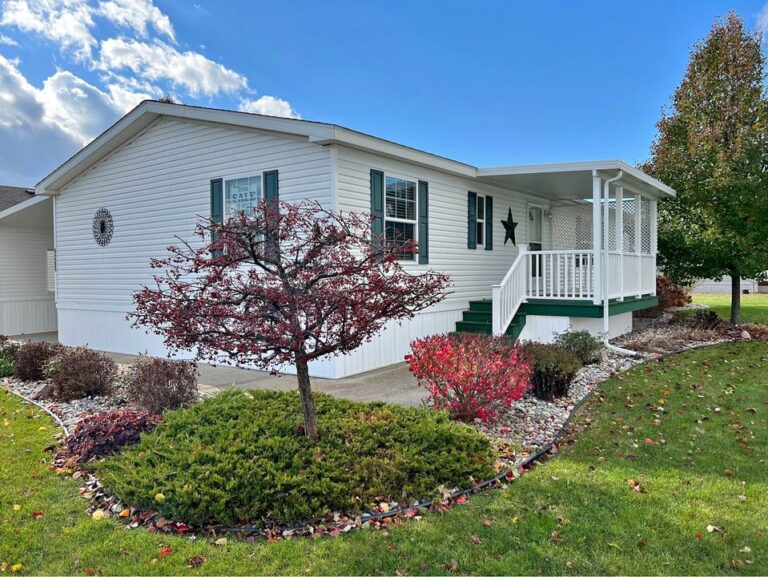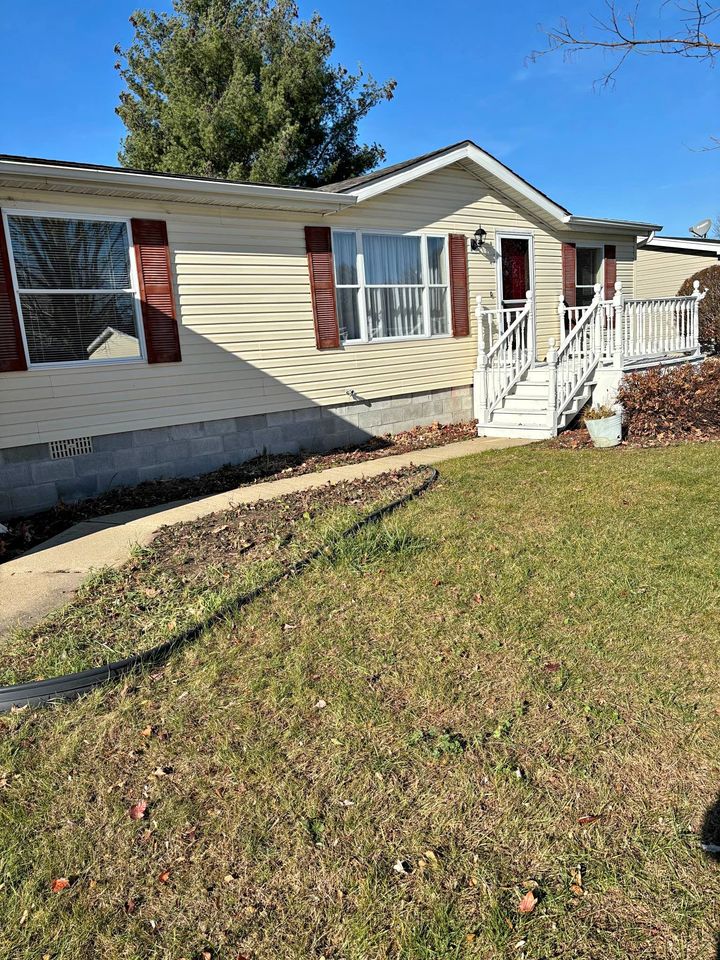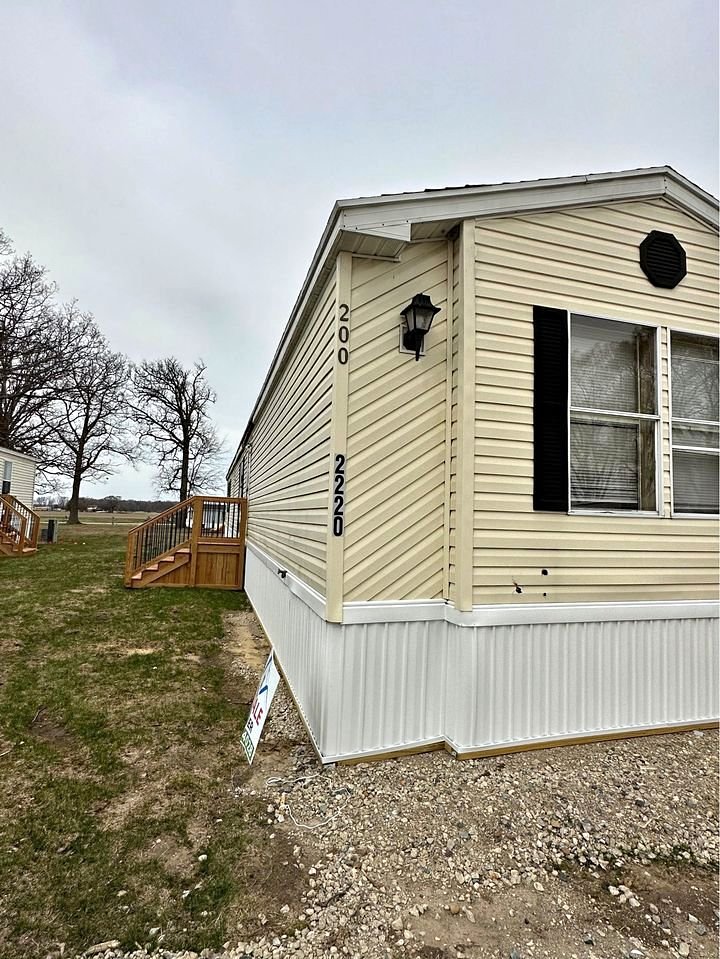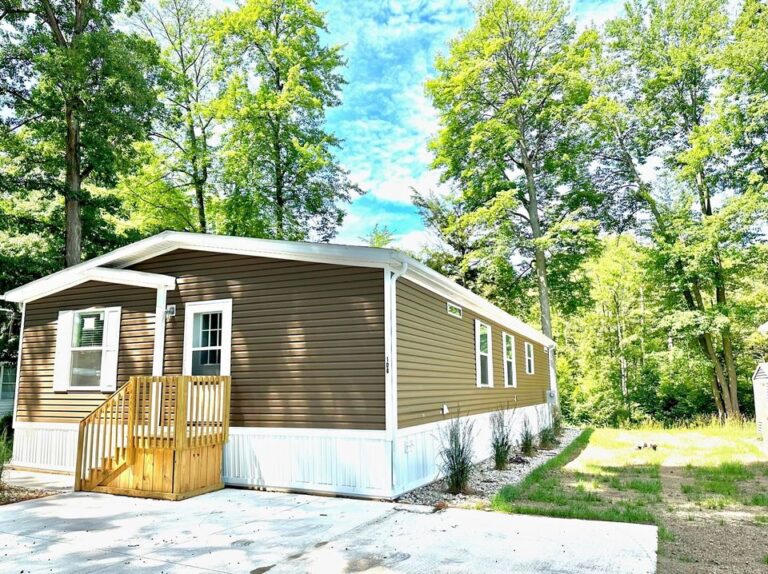Moving a mobile home can be a daunting and expensive task. If you’re looking for the cheapest way to move your mobile home, you’ve come to the right place. We understand the challenges and costs involved in relocating a mobile home, and we’re here to help you find an affordable solution. In this article: Cheapest Way To Move a Mobile Home we will discuss all the things you need to be aware of when moving a mobile home.
Finding the most cost-effective method is crucial because moving a mobile home involves various factors that can impact the overall expenses. Factors such as distance, size of the home, permits, transportation, and setup all play a role in determining the final cost. By researching different options and services available in your area, you can make an informed decision that fits your budget.
Whether you’re planning to relocate within your community or across state lines, our aim is to equip you with valuable information so that you can make an informed decision.
Understanding Mobile Home Moving Costs
Moving a mobile home can be a complex and costly endeavor. Before embarking on this journey, it’s essential to have a clear understanding of the factors that affect the cost, an overview of average costs, and additional expenses to consider. Let’s delve into these aspects to gain insight into the cheapest way to move a mobile home.

Factors Affecting the Cost
The size and weight of your mobile home are significant determinants of the moving cost. Larger homes will require more labor and equipment for transportation, resulting in higher expenses. The distance between your current location and the new site plays a crucial role in determining transportation costs. Longer distances mean more fuel consumption and potentially higher fees.
In addition to size and distance, several other factors can impact the overall cost of moving a mobile home. These include obtaining permits for transporting oversized loads or crossing state lines, which may involve administrative fees. Labor costs for disconnecting utilities, preparing the home for transport, and setting it up at the new site should also be considered.
Average Cost Overview
While it’s challenging to provide an exact figure due to variations in individual circumstances, we can provide you with an average cost range based on industry standards. On average, moving a single-wide mobile home within 50 miles may cost between $5,000 and $8,000. For longer distances or larger double-wide homes, prices can range from $10,000 to $15,000 or more.
It’s important to note that these figures are estimates and can vary depending on various factors such as regional differences in labor costs or permit requirements. For instance, moving a mobile home in rural areas might incur lower costs compared to urban locations where there are more logistical challenges.
Keep in mind that there may be additional fees that could impact the final cost. These might include charges for hiring specialized equipment like cranes or heavy-duty trucks, or fees for professional movers who have experience in handling mobile homes. It’s essential to discuss these potential additional costs with your moving company beforehand to avoid any surprises.
Additional Costs to Consider
In addition to the primary moving expenses, there are several other costs that you should take into account. These can include disconnecting and reconnecting utilities such as electricity, water, and gas. You may also need to budget for any necessary repairs or modifications required before the move, ensuring that your home is in optimal condition during transportation.

Preparing for the Move
Key Requirements for Preparation
Before moving a mobile home, there are several key requirements that need to be addressed. First and foremost, it is essential to obtain the necessary permits and licenses required by local authorities. This ensures that you are in compliance with all legal regulations and can proceed with the move smoothly. Scheduling utility disconnections is crucial to avoid any complications during transportation. By disconnecting utilities such as water, electricity, and gas ahead of time, you can prevent any potential damage or hazards.
Another important aspect of preparation is securing proper insurance coverage. Moving a mobile home involves inherent risks, so having adequate insurance protection is vital. It is advisable to consult with an insurance provider specializing in mobile homes to ensure you have comprehensive coverage that includes both transit and setup phases of the move.
Furthermore, conducting a thorough inspection and documentation of your mobile home before the move is highly recommended. This includes assessing its structural integrity, identifying any existing damages or repairs needed, and documenting its condition through photographs or videos. This documentation serves as evidence in case any disputes arise during or after the move.
Site-Specific Factors to Account For
Moving a mobile home requires careful consideration of site-specific factors that may impact the process and overall cost. If your current location has narrow roads or limited access points, it can pose challenges during transportation. Special equipment or alternative routes may be necessary to navigate these obstacles safely.
Moreover, urban versus rural locations present different sets of complications. Urban areas often have stricter zoning restrictions or regulations that need to be adhered to during the relocation process. On the other hand, rural areas might require longer travel distances or encounters with rough terrains along the way.
It’s important to account for these site-specific factors when planning your move as they can significantly influence the overall cost involved in relocating your mobile home.
Legal Requirements and Permits
Moving a mobile home involves various legal requirements and permits that must be fulfilled. It is essential to familiarize yourself with these regulations to ensure a smooth and lawful move.
Firstly, you will need to comply with any state or local laws governing the transportation of mobile homes. This may include obtaining oversized load permits or specialized licenses for the transport vehicle and driver.
There might be specific zoning restrictions or regulations imposed by your local jurisdiction that you must adhere to.

Evaluating DIY vs. Hiring Professionals
DIY Guide to Moving a Mobile Home
Moving a mobile home can be an exciting but daunting task. If you’re considering a do-it-yourself approach, there are several steps you need to follow to ensure a successful move. First, gather the necessary equipment such as jacks, blocks, and straps to safely lift and secure your mobile home. It’s also crucial to recruit help from friends or family members who have experience in heavy lifting or construction work.
Once you have your team assembled, it’s time to plan the logistics of the move. Measure the dimensions of your mobile home and create a detailed route plan that takes into account any obstacles or challenges along the way. Make sure to obtain any necessary permits or approvals required by local authorities before moving day.
While moving your own mobile home can save you money, it’s important to be aware of potential pitfalls. One major challenge is ensuring the structural integrity of your mobile home during transportation. Improper handling or securing could result in damage or even collapse during transit. Navigating narrow streets, bridges, or low-hanging power lines can pose significant risks if not properly accounted for.
Benefits of Professional Movers
Hiring professional movers for your mobile home relocation comes with its own set of advantages. These experts bring years of experience and specialized knowledge in handling all aspects of moving a mobile home. They have access to advanced equipment and techniques that ensure safe and efficient transportation.
One key benefit of hiring professionals is their ability to handle complex logistics seamlessly. They understand how to navigate challenging routes and overcome obstacles that may arise during transit. With their expertise, they can minimize risks and ensure a smoother relocation process.
Another advantage is potential cost savings through efficient planning and execution by professionals. While hiring movers may seem expensive at first glance, they often have established relationships with suppliers and contractors which allows them to negotiate better rates for materials and services. They can complete the move in a shorter timeframe compared to a DIY approach, saving you time and potential additional expenses.
Pros and Cons Comparison
When weighing the decision between a DIY move and hiring professionals, it’s essential to consider several factors. One crucial aspect is cost. While moving your mobile home yourself may seem cheaper upfront, you need to factor in the costs of equipment rental or purchase, permits, and potential damages that could occur during the move.

Reducing Your Mobile Home Moving Expenses
Moving a mobile home can be a costly endeavor, but there are ways to minimize your expenses and make the process more affordable. By implementing some cost-saving strategies, you can reduce the financial burden of moving your mobile home to a new location. Let’s explore some tips and strategies that can help you achieve this goal.
Tips for Cost Reduction
There are several practical tips you can follow. First, consider negotiating with movers or exploring alternative options to find the most affordable rates. Some movers may be willing to offer discounts or lower prices if you’re flexible with your moving dates or willing to share transportation costs with other homeowners in the area.
Another way to save money is by using budget-friendly packing materials and strategies. Instead of purchasing new boxes and supplies, consider using recycled materials or borrowing them from friends and family. Try to pack efficiently by maximizing space and minimizing the number of trips required.
Transportation Cost Strategies
Transportation costs can make up a significant portion of your overall moving expenses. To reduce these costs, consider exploring different transportation options such as flatbed trailers or specialized carriers specifically designed for transporting mobile homes. These alternatives may offer more competitive rates compared to traditional moving companies.
Route planning is another strategy that can help save on transportation costs. By carefully mapping out your route in advance, you can avoid unnecessary detours or toll roads that could add extra charges to your bill. Consolidating moves with other homeowners in the same area can also lead to potential savings since multiple mobile homes can be transported together, sharing the cost of transportation.
Evaluating “Free Move” Opportunities
Some mobile home dealerships or parks may advertise “free move” offers as an incentive for potential buyers. While these offers might seem enticing at first glance, it’s important to evaluate their true value and feasibility before making any decisions. Take the time to research and understand any potential hidden costs or obligations associated with these “free moves.”
For instance, there may be restrictions on the distance of the move or requirements to use specific movers. It’s essential to consider these factors and determine if the offer aligns with your needs and budget. Conduct thorough research, read reviews, and consult with professionals in the industry to ensure you’re making an informed decision.

Specialty Moves: Portable Building Transport
Unique Costs and Considerations
There are some unique costs and considerations that you should be aware of. While the basic cost of hiring a manufactured home transporter or truck service may be straightforward, there are additional expenses that can arise during the process. These uncommon costs can include bridge tolls, road permits, or even the need for escort vehicles.
Bridge tolls are fees charged for crossing certain bridges during your mobile home move. Depending on your route, you may encounter bridges that require payment to pass through. It’s important to factor in these tolls when planning your budget.
Road permits are another consideration when moving a mobile home. Some states or regions may require special permits to transport oversized loads on their roads. These permits typically come with a fee and must be obtained before your move can proceed.
In certain cases, escort vehicles may also be required during the transportation of a mobile home. Escort vehicles help ensure the safety of both the movers and other drivers on the road by providing guidance and protection throughout the journey. However, keep in mind that hiring escort vehicles will add an extra expense to your overall moving cost.
It’s crucial to research any regional-specific costs that may apply to your mobile home move. Different areas have different regulations and requirements, so being aware of these factors beforehand will help you avoid any surprises or unexpected expenses along the way.
Distance and Weight Implications
The distance of your move plays a significant role in determining the overall cost of transporting a mobile home. Fuel consumption and travel time increase as distance increases, which directly impacts pricing structures set by manufacturers or transport companies.
Weight is another important factor when considering the cost implications of moving a mobile home. Size restrictions may apply based on weight limits set by local regulations or transportation equipment capabilities. If your mobile home exceeds these weight limits, additional equipment such as cranes or specialized trailers may be needed, leading to higher transportation fees.
It’s essential to consult with a professional mobile home transporter or truck service to understand how distance and weight will affect your moving costs. They can provide insights into pricing structures based on the distance traveled and any additional fees that may arise due to weight restrictions or equipment requirements.
By taking these unique costs and considerations into account, you can better prepare yourself for the expenses associated with moving a mobile home.
The Cheapest Way to Move a Mobile Home
Moving a mobile home can be a costly endeavor, but with careful planning and consideration, there are ways to minimize expenses.
Step-by-Step Cheapest Methods
To execute the cheapest mobile home move, it is crucial to have a detailed plan in place. By following these steps, you can minimize expenses at each stage of the process:
Research Mobile Home Movers: Start by researching different mobile home movers in your area. Obtain quotes from multiple companies to compare prices and services offered. Look for reputable movers with experience in handling mobile homes.
Choose Off-Peak Season: Consider scheduling your move during the off-peak season when demand for moving services is lower. Movers may offer discounted rates during these times, allowing you to save money.
Prepare Your Mobile Home: Before the move, ensure that your mobile home is properly prepared for transportation. Remove any loose or fragile items inside and secure all doors and windows to prevent damage during transit.
Optimize Route Planning: Work closely with your chosen mover to optimize the route planning process. Minimizing travel distance can significantly reduce fuel costs and overall moving expenses.
Utilize DIY Services: Depending on your capabilities and resources, consider performing certain tasks yourself instead of relying entirely on professional movers. For example, you could handle packing and unpacking or disconnecting utilities before the move.
Seek Financial Assistance: Explore potential financial assistance options available for relocating mobile homes such as grants or loans specifically designed for this purpose. These resources can help offset some of the relocation costs.
Insurance Coverage: Make sure you have adequate insurance coverage for your mobile home during transport to protect against any unforeseen incidents or damages that may occur.
By following these steps and utilizing cost-saving strategies, you can achieve an affordable mobile home move without compromising on the quality of service.
When DIY Makes Sense Financially
While hiring professional movers is often the preferred option for a mobile home move, there are situations where a DIY approach may be financially advantageous. Consider the following scenarios:
Short Distance Move: If you are moving your mobile home a short distance within your local area, it may be more cost-effective to handle the move yourself. This does not mean you can legally move a mobile home down a road yourself but if it is on your land you may be able to hire someone to move it to another spot on your land.
You may be interested in our article: Mobile Home Power Pole
Insurance and Liability Factors
Protecting Your Home During Transit
Ensuring its safety during transit is crucial. Adequate protection measures should be taken to avoid any damage or accidents along the way. One of the first steps is to properly brace the home, securing all loose items and ensuring they won’t shift during transportation. This can be done by using braces or supports inside the home.
Tie-downs are another essential aspect of protecting your mobile home during transit. These straps or chains help secure the home to the transport vehicle, preventing excessive movement that could lead to damage. It’s important to use high-quality tie-downs and ensure they are properly installed according to manufacturer guidelines.
Regular inspections throughout the journey are also recommended. By checking for any signs of shifting, loosening, or damage, you can address potential issues promptly and prevent further problems. Inspections should include both the exterior and interior of the mobile home.
Neglecting proper protection measures can have severe consequences. Without adequate bracing and tie-downs, your mobile home may experience structural damage or even detach from the transport vehicle entirely, posing a significant risk not only to your property but also to other road users.
Understanding Insurance Options
Insurance coverage is an essential consideration when moving a mobile home. It provides financial protection against potential risks and liabilities that may arise during transportation. There are different insurance options available for mobile home moves, each offering varying levels of coverage.
Liability insurance is one such option that covers damages caused by accidents involving your mobile home while in transit. This type of insurance typically includes coverage for property damage as well as bodily injury claims that may result from an accident.
It’s crucial for homeowners to assess their insurance needs before embarking on a move and obtain appropriate policies accordingly. Some moving companies may offer insurance packages specifically tailored for transporting mobile homes.
Moving without insurance can leave you vulnerable to significant liabilities. In the event of an accident or damage to your mobile home, you may be responsible for covering the costs out of pocket. This can result in substantial financial strain and potential legal consequences.
Selling vs. Moving Your Mobile Home
Assessing Relocation Options
It’s essential to consider all your options before making a decision. One alternative worth exploring is selling your mobile home. By selling it, you can avoid the complexities and costs associated with moving. Selling allows you to recoup some of your investment and potentially upgrade to a newer or larger mobile home.
Before deciding whether to move or sell your mobile home, take into account the costs and benefits of each option. Relocating a mobile home involves expenses such as transportation fees, permits, and site preparation costs at the new location. On the other hand, purchasing a new mobile home may come with its own set of expenses like down payments and financing charges.
To make an informed decision, consider factors such as the age and condition of your current mobile home. If it requires significant repairs or renovations before relocation, selling might be a more viable choice financially. Think about how long you plan to stay in the area where your mobile home is currently situated. If you anticipate moving again in the near future, selling might be preferable over going through multiple relocation processes.
Market Considerations for Selling
When contemplating selling your mobile home, market conditions play a crucial role in determining its value and how quickly it will sell. Factors such as supply and demand dynamics in the local housing market can impact pricing trends for mobile homes.
To maximize the sale price of your mobile home or expedite the selling process, there are several strategies you can employ. First, ensure that your property is well-maintained both inside and out by addressing any necessary repairs or cosmetic enhancements. This could involve fixing plumbing issues, repainting walls, or improving curb appeal through landscaping.
Another consideration is pricing your mobile home competitively within the local market while also accounting for its unique features and amenities. Conduct research on comparable sales in your area to gain insights into the going rates for similar mobile homes. By setting a realistic and attractive price, you increase the likelihood of attracting potential buyers.
Preparing your mobile home for sale may also involve some costs. These can include expenses for professional cleaning services, staging the interior to showcase its potential, or hiring a real estate agent who specializes in mobile home sales. While these costs should be factored into your decision-making process, they can ultimately contribute to a smoother and faster selling experience.
Finding Reputable Moving Companies
Finding reputable moving companies is crucial. You want to ensure that you are working with professionals who provide quality service at an affordable price. Here are some tips to help you in your search:
Tips for Quality and Affordability
Research Companies: Take the time to research different moving companies in your area. Look for companies that specialize in mobile home transportation and have experience in handling such moves.
Read Reviews: Reading reviews from previous customers can give you valuable insights into the reputation of a moving company. Look for feedback on their professionalism, timeliness, and overall customer satisfaction.
Compare Quotes: Reach out to multiple moving companies and request quotes for your specific mobile home move. Comparing these quotes will give you an idea of the average cost and help you identify any outliers.
Balance Cost Considerations with Reliability: While affordability is important, don’t solely focus on finding the cheapest option. It’s essential to strike a balance between cost considerations and reliability. Choosing a mover solely based on price may result in subpar service or hidden fees down the line.
Avoiding Hidden Fees and Scams
Unfortunately, there are some unscrupulous individuals or companies in the moving industry who may try to take advantage of unsuspecting customers. To protect yourself from hidden fees and scams, consider the following:
Be Wary of Lowball Estimates: If a quote seems too good to be true, it probably is. Beware of movers who offer significantly lower estimates than others as they might tack on additional charges later.
Verify Licensing and Insurance: Before hiring a moving company, verify their licensing information with the appropriate regulatory bodies. Ensure they have adequate insurance coverage to protect your mobile home during transit.
Get Everything in Writing: Obtain written documentation of all agreements made with the moving company. This includes the estimated cost, the services to be provided, and any additional fees or surcharges.
Trust Your Gut Feeling: If something feels off or you encounter suspicious behavior during your interactions with a moving company, trust your instincts. It’s better to find another reputable mover than risk being scammed.
By following these tips, you can navigate through the process of finding reputable moving companies for your mobile home move. Remember to prioritize quality and affordability while remaining vigilant against hidden fees and scams.
Conclusion: Cheapest Way to Move a Mobile Home
Moving a mobile home can be a daunting and expensive task, but with careful planning and consideration, you can find the cheapest way to make it happen. By evaluating DIY options versus hiring professionals, researching reputable moving companies, and reducing expenses wherever possible, you can significantly cut down on your mobile home moving costs. Remember to also consider the insurance and liability factors involved in the process.
In conclusion, moving a mobile home doesn’t have to break the bank. Take advantage of the tips and insights provided in this article to save money while ensuring a smooth and successful move. Whether you choose to tackle it yourself or hire professionals, remember that proper preparation is key. Good luck with your mobile home move!
Frequently Asked Questions
How much does it cost to move a mobile home?
Moving a mobile home can vary in cost depending on factors like distance, size, and permits required. On average, you can expect to pay between $5,000 and $10,000 for a local move. Long-distance moves may range from $8,000 to $15,000. It’s best to obtain quotes from professional movers for an accurate estimate.
Is it cheaper to hire professional movers or do it myself?
While moving a mobile home yourself may seem cost-effective initially, hiring professional movers often proves more efficient and safer in the long run. Professionals have the expertise, equipment, and insurance necessary for a smooth relocation. They also handle permits and ensure compliance with regulations that could be time-consuming if done independently.
What factors affect the cost of moving a mobile home?
Several factors influence the cost of moving a mobile home. Distance plays a significant role since longer hauls require more fuel and time. The size and weight of your home impact transportation costs too. Accessibility challenges at both origin and destination sites might increase expenses due to specialized equipment or additional labor requirements.
Are there any permits required to move a mobile home?
Yes, moving a mobile home typically requires permits from local authorities. These permits ensure compliance with zoning regulations and safety standards during transportation. The specific permit requirements vary by location, so it’s essential to contact your local building department or transportation agency for information on obtaining the necessary permits.
Can I finance the cost of moving my mobile home?
Yes! Some companies offer financing options specifically tailored for relocating mobile homes. These financing programs allow you to spread out the cost over time instead of paying upfront. It’s advisable to research reputable lenders who specialize in this type of financing to find suitable terms that fit your budget.
You might also be interested in our article:
What Happens to a Mobile Home After Eviction
